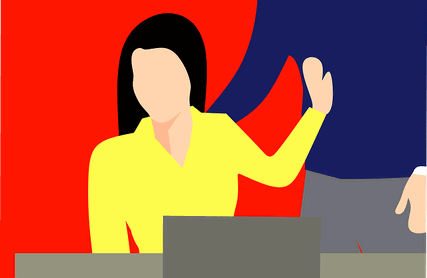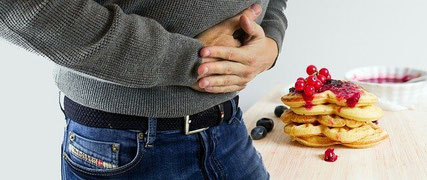
Sometimes, you might look back on something you did and think: "What was I thinking?" Alternatively, you might sometimes look at someone else's actions and say, "What's wrong with her? I would never do that."
Don't be so sure.
The truth is, we're not good at forecasting how we will act in a stressful situation. Research psychologists call this the hot-cold empathy gap. Essentially, when you're in a calm, rational "cold" state, you find it hard to imagine the impact of your emotions when you're caught up in a more intense "hot" state.
Here's an example. Imagine you're in a job interview. Your interviewer is a man in his mid-30s and you're alone in the room with him. The interview begins normally as he asks you some standard questions. After a few minutes, he asks: Do you have a boyfriend? Soon afterwards, he asks if people find you desirable. You're also asked if you think it's important for women to wear bras to work.
This is blatant sexual harassment. How would you would feel if you were in this situation? How would you respond to the interviewer?
In a famous 2001 study, nearly 200 women were asked how they would respond. About 90 per cent said they would respond in a very assertive way. About 60 per cent said they would say to him that his questions were inappropriate. About 30 per cent said they would leave the interview. More than two-thirds said they would refuse to answer at least one of the questions. About 30 per cent said they would feel anger; only 2 per cent imagined they would be afraid.
So, that's how women thought they would respond to an imagined case of sexual harassment, but how would they respond to a real-life case? To find out, the researchers placed job ads advertising a vacancy for a research assistant. The respondents were greeted by a man in his mid-30s who asked the same three questions: Do you have a boyfriend? Do people find you desirable? Do you think it's important for women to wear bras to work?
As it happened, no-one left the interview. Everyone answered every question. Nor did they report feeling angry; rather, they were afraid.
Now, this study is nearly two decades old. Today, some women might feel more empowered to push back, while there might be more appreciation among the general population as to the difficulties of handling such situations. Nevertheless, the broader point holds: when you're in a cold state, it's very difficult to imagine how you would feel in a hot state, and very difficult to estimate how these emotions might impact our behaviour.
EXPERIMENTS

Countless experiments confirm this point. After smoking, smokers underestimate how much money they would pay for a cigarette in a high-craving state. After receiving an opiate dose, heroin addicts underestimate how much they will crave it at a later stage. When you're not thirsty, you underestimate your craving for water after a workout. When not aroused, young men completely underestimate their willingness to undertake risky sexual practices when they are aroused. People who aren't hungry have been found to be more critical of someone who stuffed himself with hamburgers compared to people who are hungry. People are more critical of their own past emotion-driven behaviour when they are not currently experiencing the same emotions. In contrast, when you're in the grip of those same emotions – fear, anger, sadness, whatever – you're much more likely to "get" why you acted the way you acted in the past.
In short, when in a "cold" state, we're not good at estimating how we might act in a "hot" state. We sometimes criticise the actions of others because we think we would have behaved differently if we were in their situation. We think we'd stand up to a harasser, talk back to the bullying boss, control that addiction, and so on.
It's easy to be judgmental and to see others as weak in particular situations, but it's not that simple. Instead of judging them, try to be more compassionate and recognise that in the heat of the moment, you might become a very different person to the person you are now.
(First published in Southern Star, 16/04/2020).